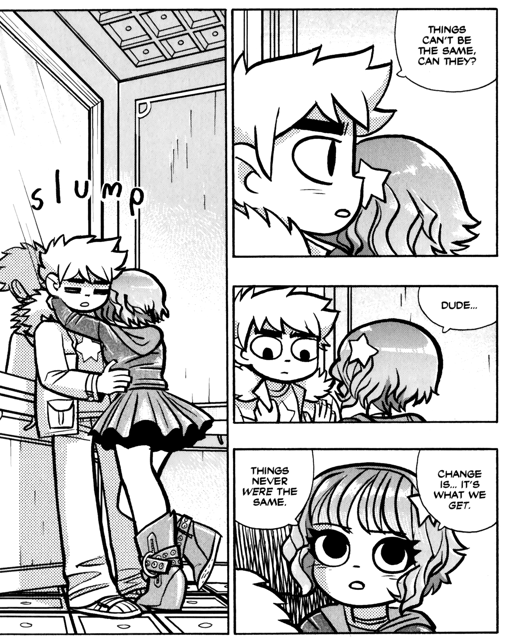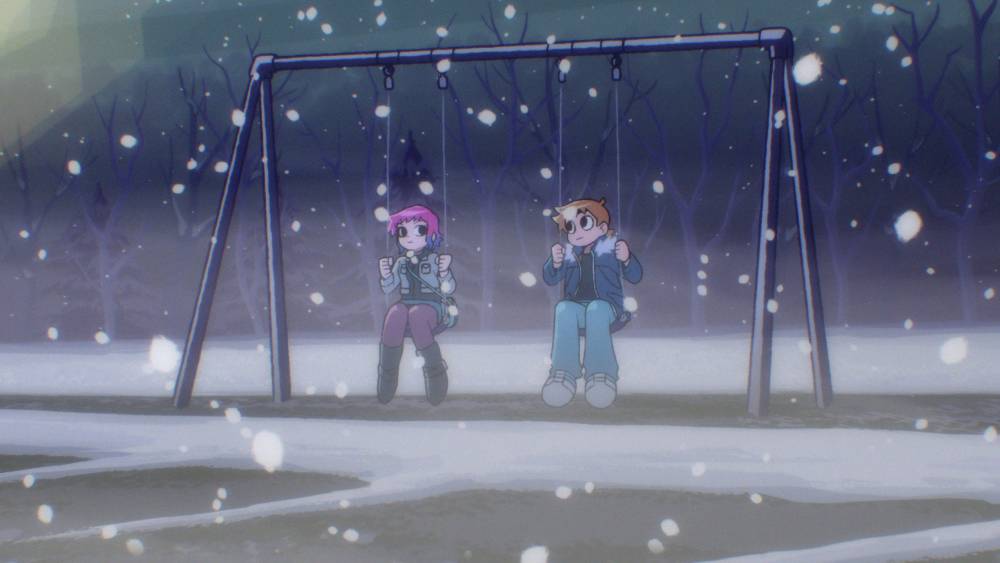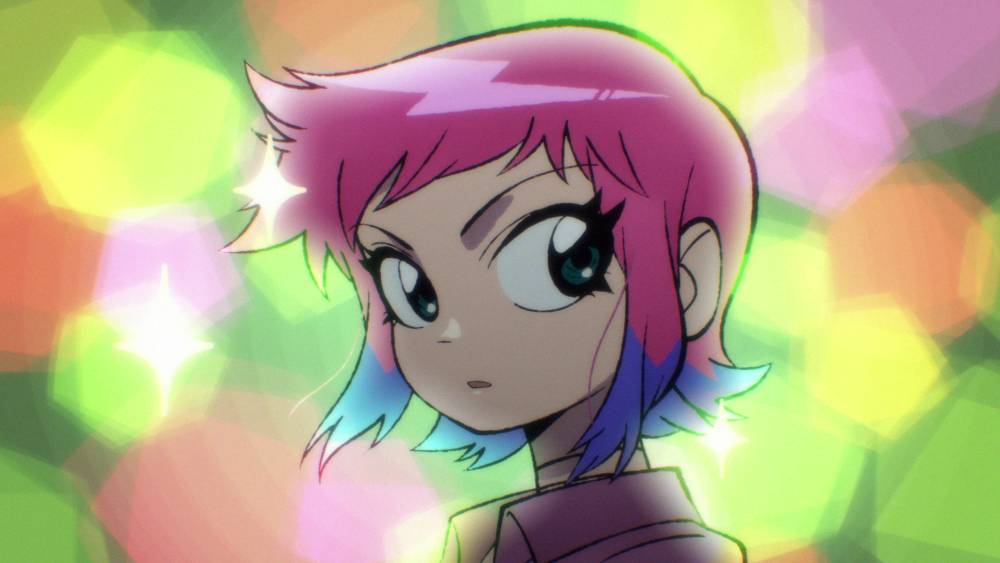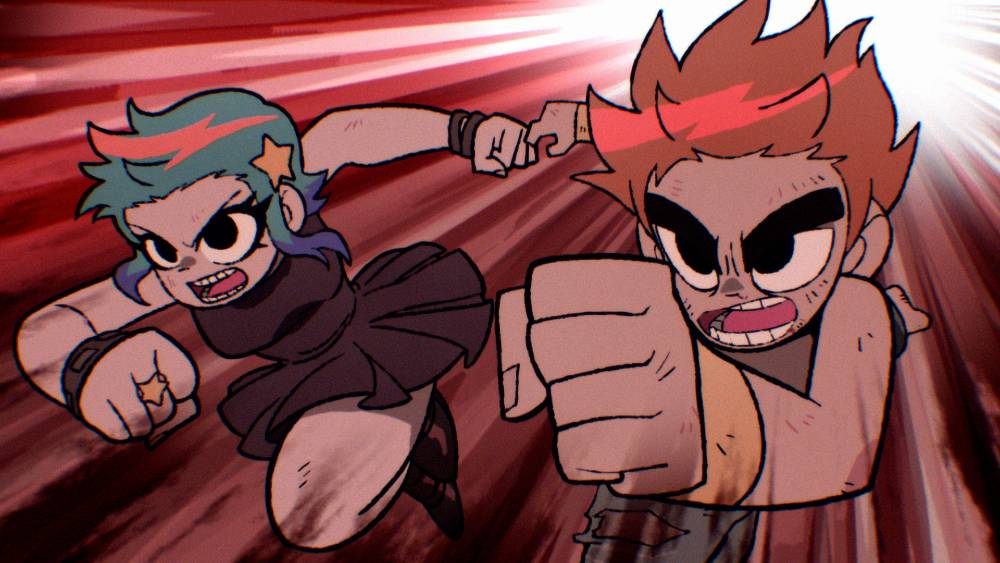Read also:
How to Watch FX Live Without CableHow To Watch AMC Without CableHow to Watch ABC Without CableHow to Watch Paramount Network Without CableThe ScienceSaru-produced animated series rebuilds rather than retells Bryan Lee O’Malley’s beloved comic.
Late in the final volume of Bryan Lee O’Malley’s 2004-2010 comic series Scott Pilgrim (Scott Pilgrim’s Finest Hour), once the action’s done and the hateful Gideon Graves has been slain, protagonists Scott Pilgrim and Ramona Flowers take a moment to process everything. Defeating Gideon meant facing not only the vicious misogynist swordsman but also their respective character flaws (It’s telling that one of Scott’s key moments is his realizing just how alike he and Gideon are, and by gaining that understanding, he affirms that, yeah, Gideon has so got to die).

As Ramona says, change is one of life’s constants, which applies to Scott Pilgrim’s ventures into new mediums. Edgar Wright’s thoroughly enjoyable movie shifted around characters and reworked some of Scott’s flaws. The colorful, impeccably soundtracked, hair-tearingly difficult Ubisoft-produced video game ramped up the goofy save for one particularly pointed ending. And now, with the Netflix animated series Scott Pilgrim Takes Off, creator O’Malley—joined by co-writer and co-showrunner BenDavid Grabinski and animation studio ScienceSaru (with episode director Abel Góngora) have changed things up yet again. Rather than retell Scott Pilgrim as it’s been since 2004 (a story already told, with riffs, as a comic, movie, and video game), the creative team opts for something more radical. It’s a work as much in conversation with the Scott Pilgrim that came before as an adaptation.
It’s not unlike Rebuild of Evangelion. Call it Rebuild of Scott Pilgrim, if you will—down to closing on an all-timer of a song.

But Scott Pilgrim Takes Off has to set the stage before it can flip the table, and it does so admirably. Most of the movie’s massive ensemble reprises their characters here; while good screen actors don’t always translate into good voice actors, everyone is game and does at least good work. Several of the film’s original cast members get expanded room to grow. There’s Jason Schwartzman’s oily head of the League of Evil Exes, Gideon Graves (whom the story forces out of his comfort zone), and Satya Bhabha’s mystically empowered Matthew Patel (figuring out what he actually wants from the world). Then there’s Michael Cera’s Scott Pilgrim, closer at first to the comic’s blinkered incarnation than the movie’s maturing slacker; Cera plays him as more oblivious, more charming, and sharper than the movie’s Scott in key respects. It’s darn good work.

But if there’s a first among equals here, it’s Mary Elizabeth Winstead’s expanded turn as Ramona Flowers. Where Scott, at his worst, will hide from his problems, Ramona opts to run. She’s run all the way to Toronto, and if push comes to shove, she’ll run from there, too. She dyes her hair daily, not only because she likes changing her look but because it’s a way to keep from settling down, from letting any roots (pun intended) grow.
There are genuine sparks with Scott, though, goof that he is — a connection that Ramona can’t ignore. Winstead’s take on Takes Off‘s Ramona is guarded, reserved, and a little unsure of who she’ll be if she lets down that wall. As Takes Off continues and Ramona faces her past, present, and future, Winstead builds a blossoming into her. It’s tremendously compelling work.

Once O’Malley, Grabinski, Góngora, and company set Scott Pilgrim Takes Off‘s stage in episode 1, the series proves willing to upend everything later on. This is especially true in the action scenes, built on a combination of video game logic (present in the series since Scott Pilgrim’s Precious Little Life in 2004) and emotional logic (like Clémence Poésy says to John David Washington in Tenet, “Don’t try to understand it. Feel it.”). Consequently, they’re a thrill. Ramona and Evil Ex Roxie Richter (Mae Whitman) battle with their history and the stories they’ve told themselves about each other while falling through movies and wrecking a video store on the verge of failing. Truth and acceptance are powerful, but that doesn’t automatically clear away the wreckage.
Likewise, when skateboarder-turned-action-star Lucas Lee (Chris Evans) goes out for his morning ride through Hollywood, the laws of physics more or less give up—just like he has. He’s resigned himself to a life of casual jerkery and floating pleasures; riding is the closest he gets to feeling something beyond the emptiness he made for himself. Those flips, drops, and grinds are worth savoring, so why not push them beyond the limits of reality?

Much like Rebuild of Evangelion—a project that represented, in part, Hideaki Anno and his creative partners returning to a series he made as a younger man and processing their (and the world’s) reactions to it. The same is true of Scott Pilgrim Takes Off—which wrestles with how the world and culture have changed since the original comic wrapped back in 2010. To thrive as its own work, the show can’t just rehash Scott Pilgrim as if O’Malley and his fellow creators are the same people they were. It has to change. It has to have that conversation with itself.
The result is a genuine treat. But if you’re entirely new to the series, take some time to watch Wright’s movie or read O’Malley’s comic—Takes Off‘s conversation with both is a big part of why it works. They’re well worth the time anyway.
Scott Pilgrim Takes Off is now available on Netflix.